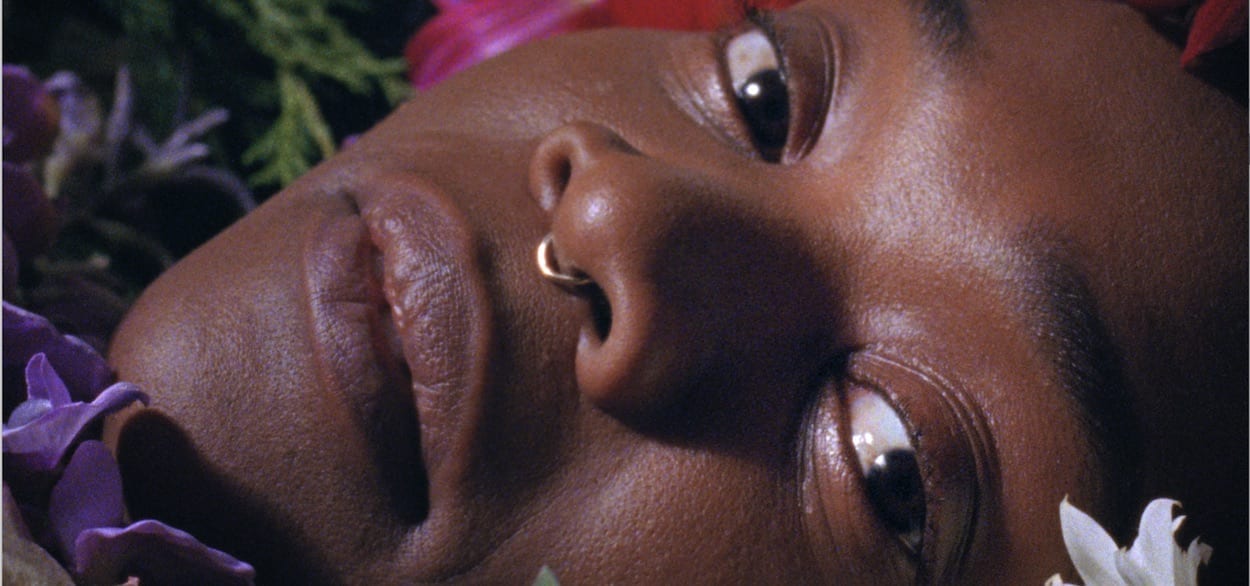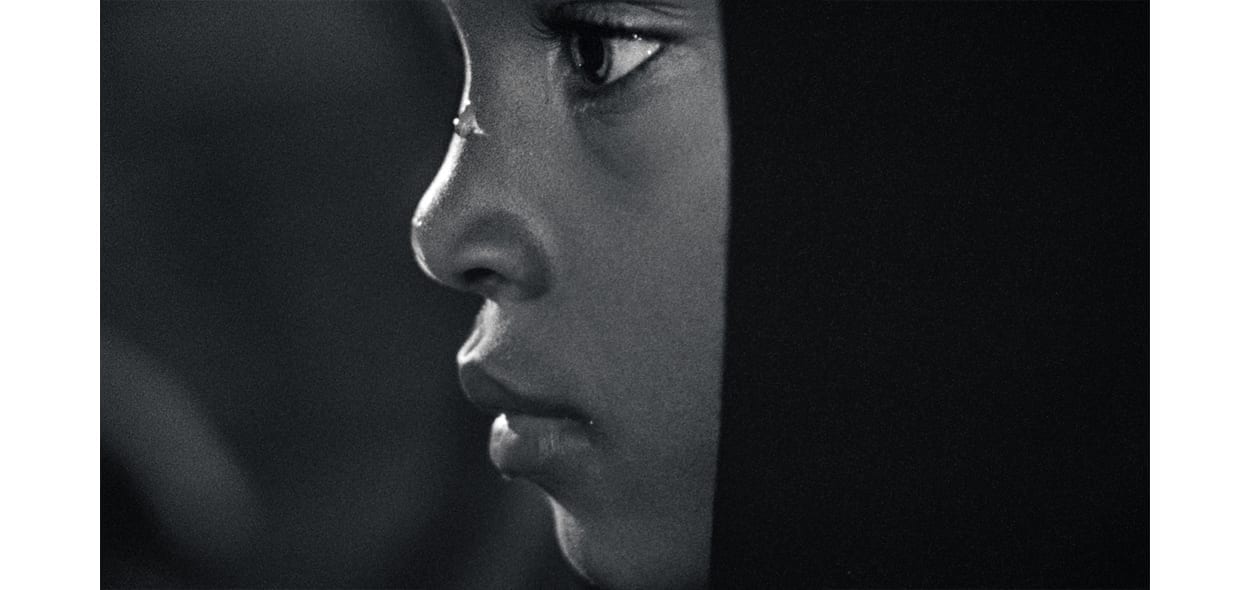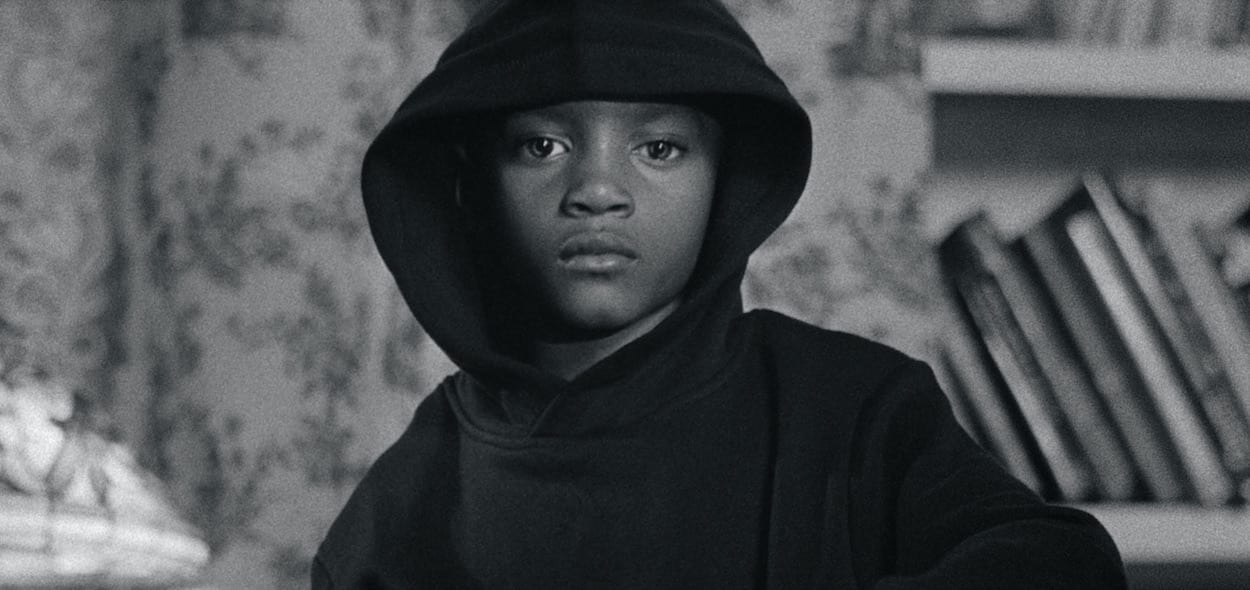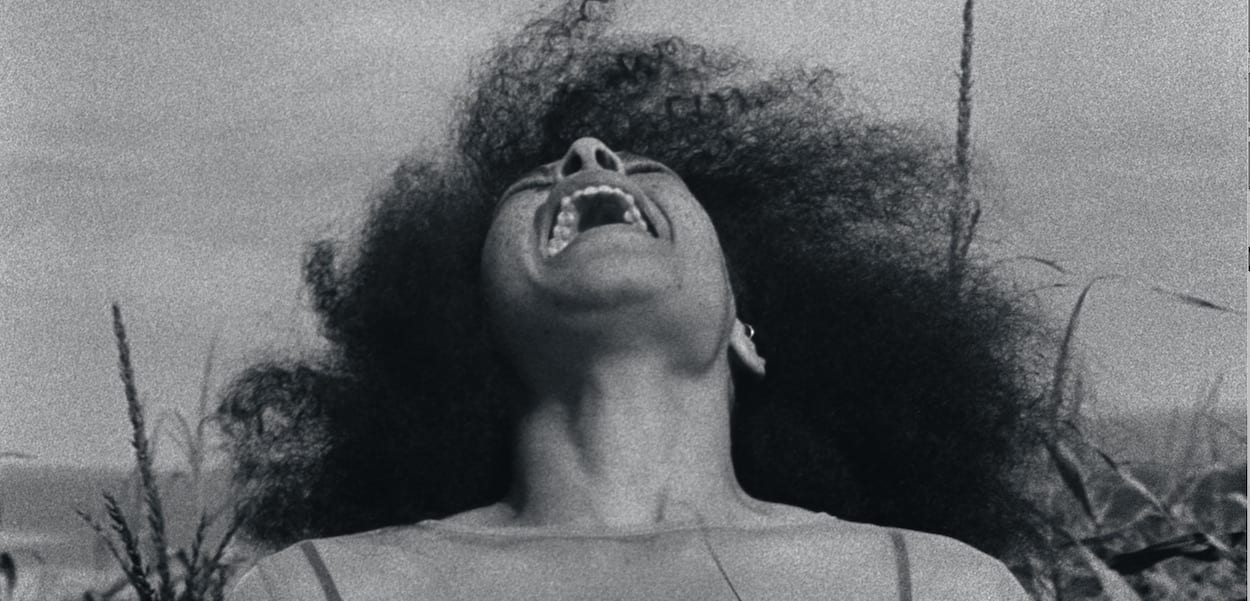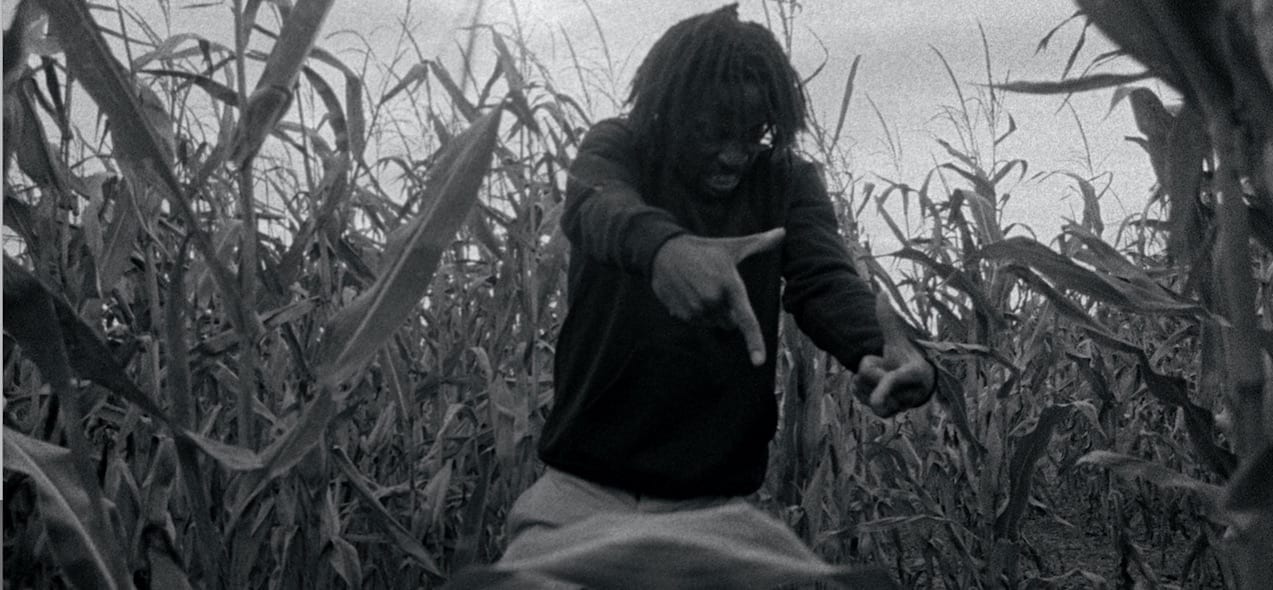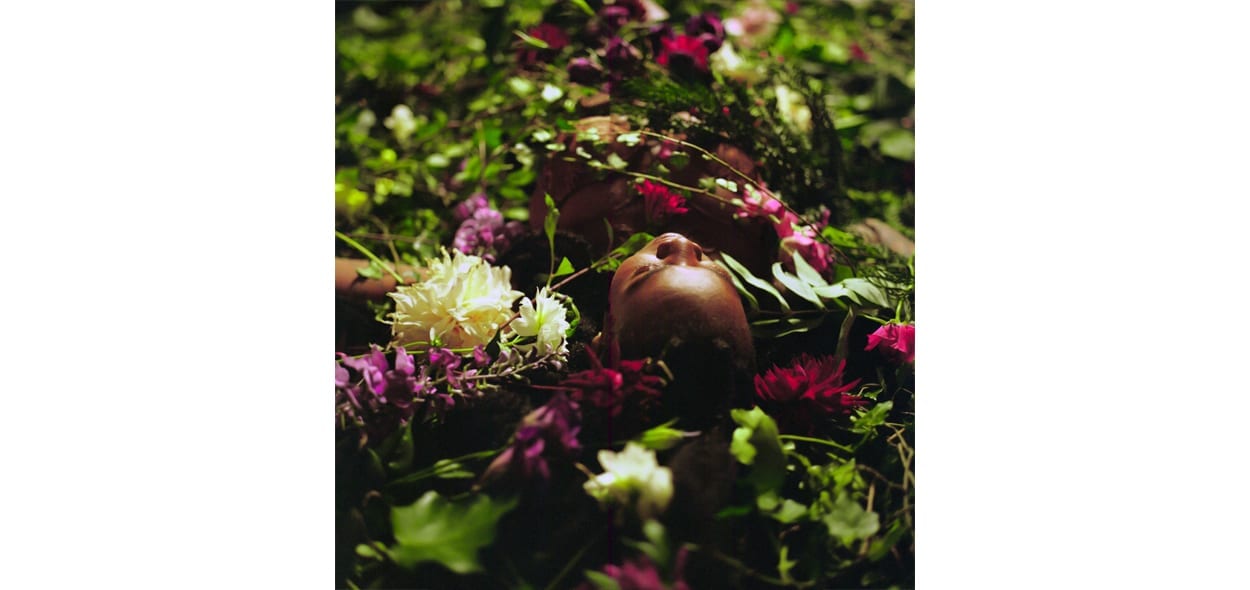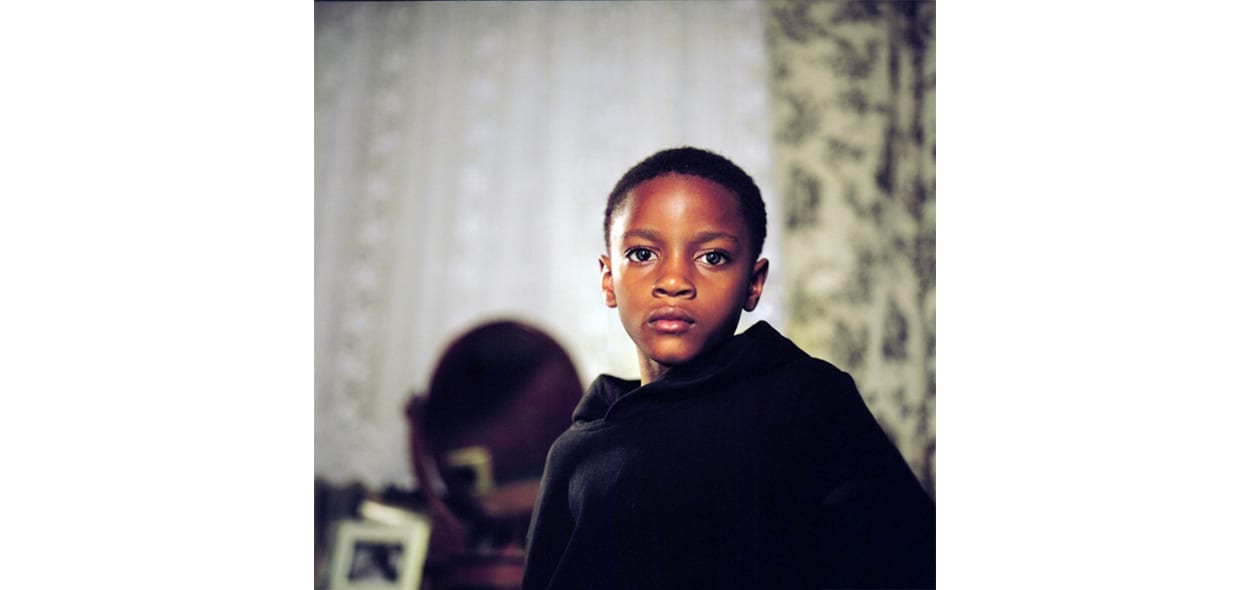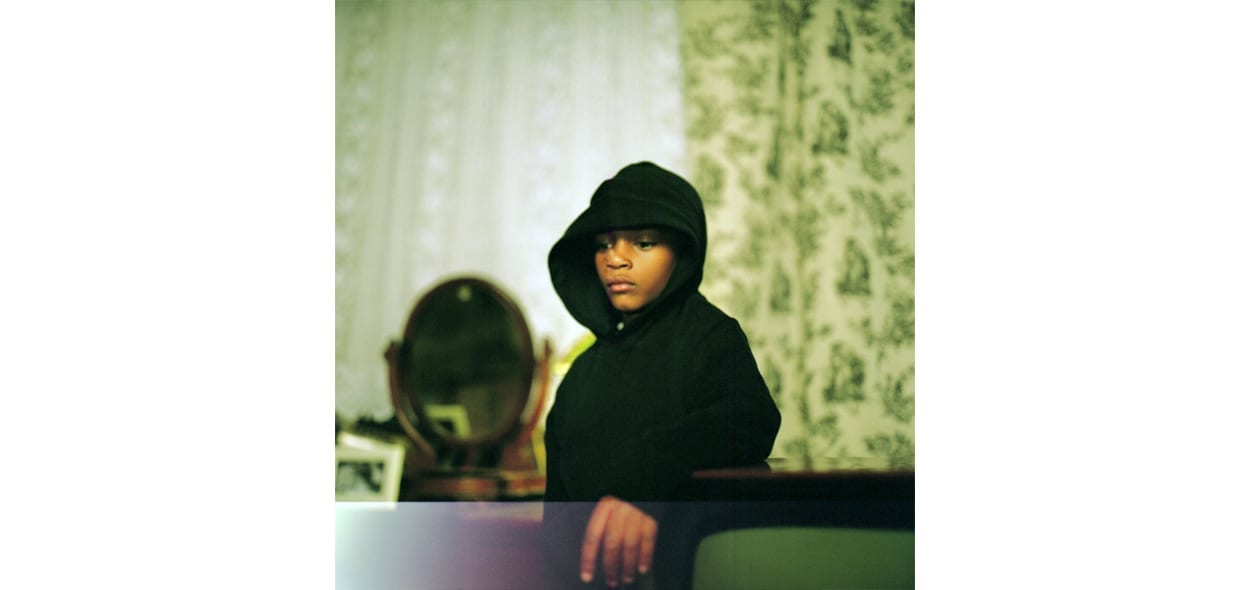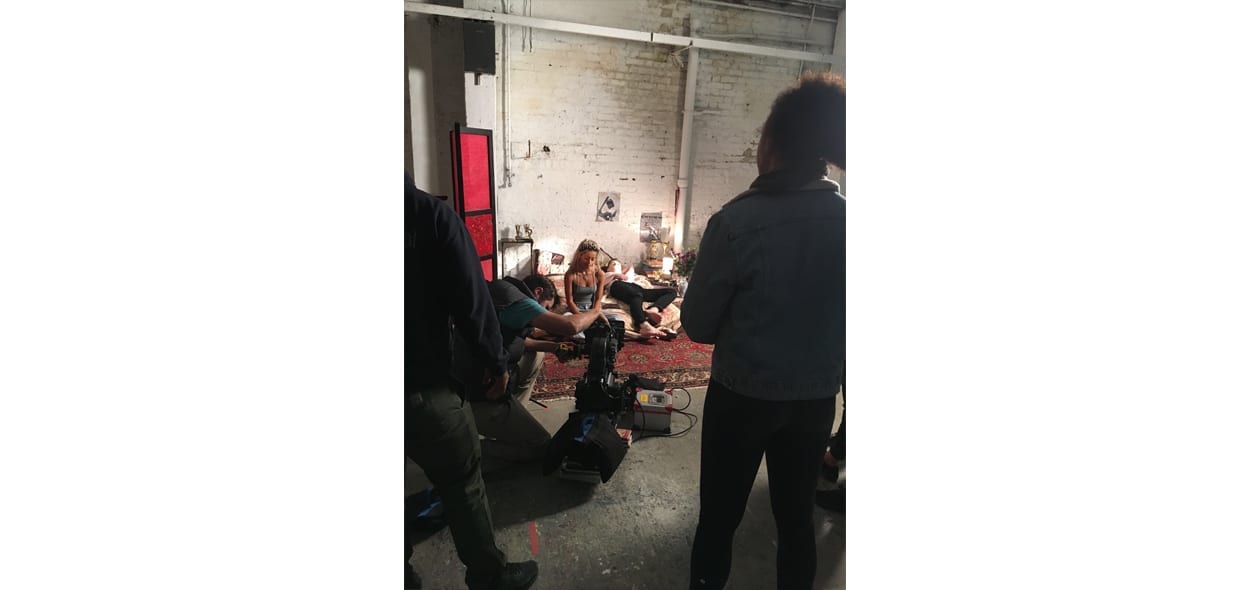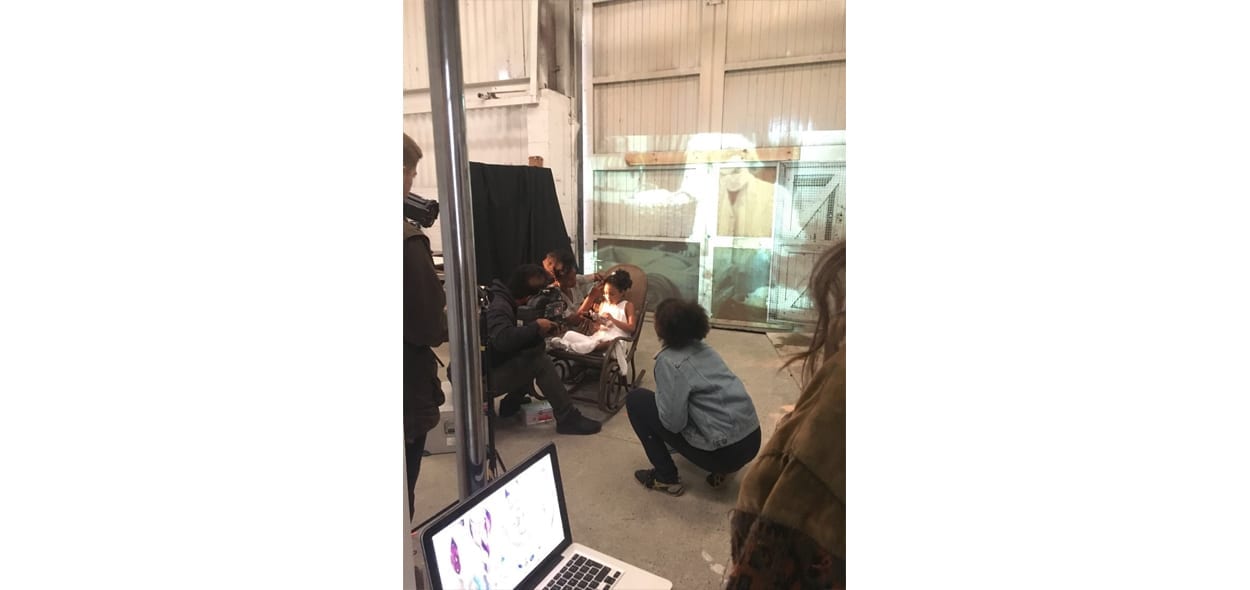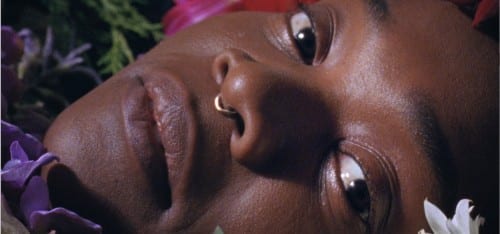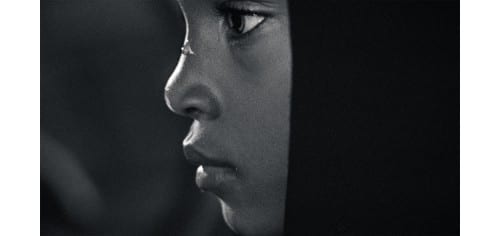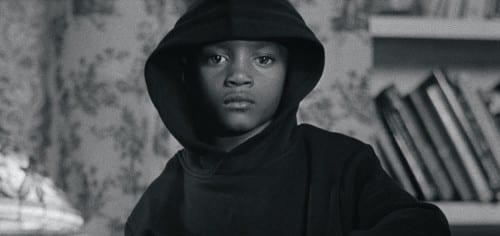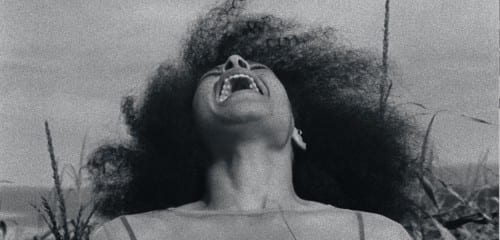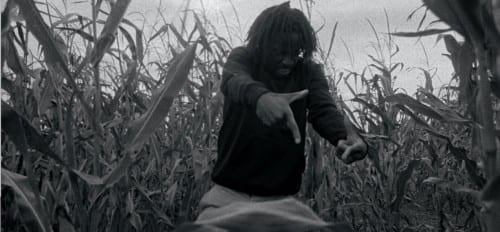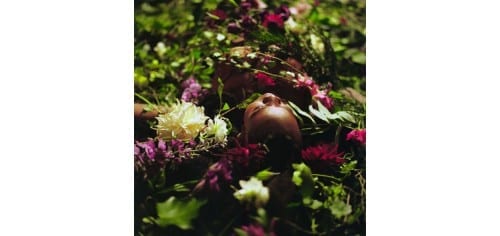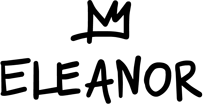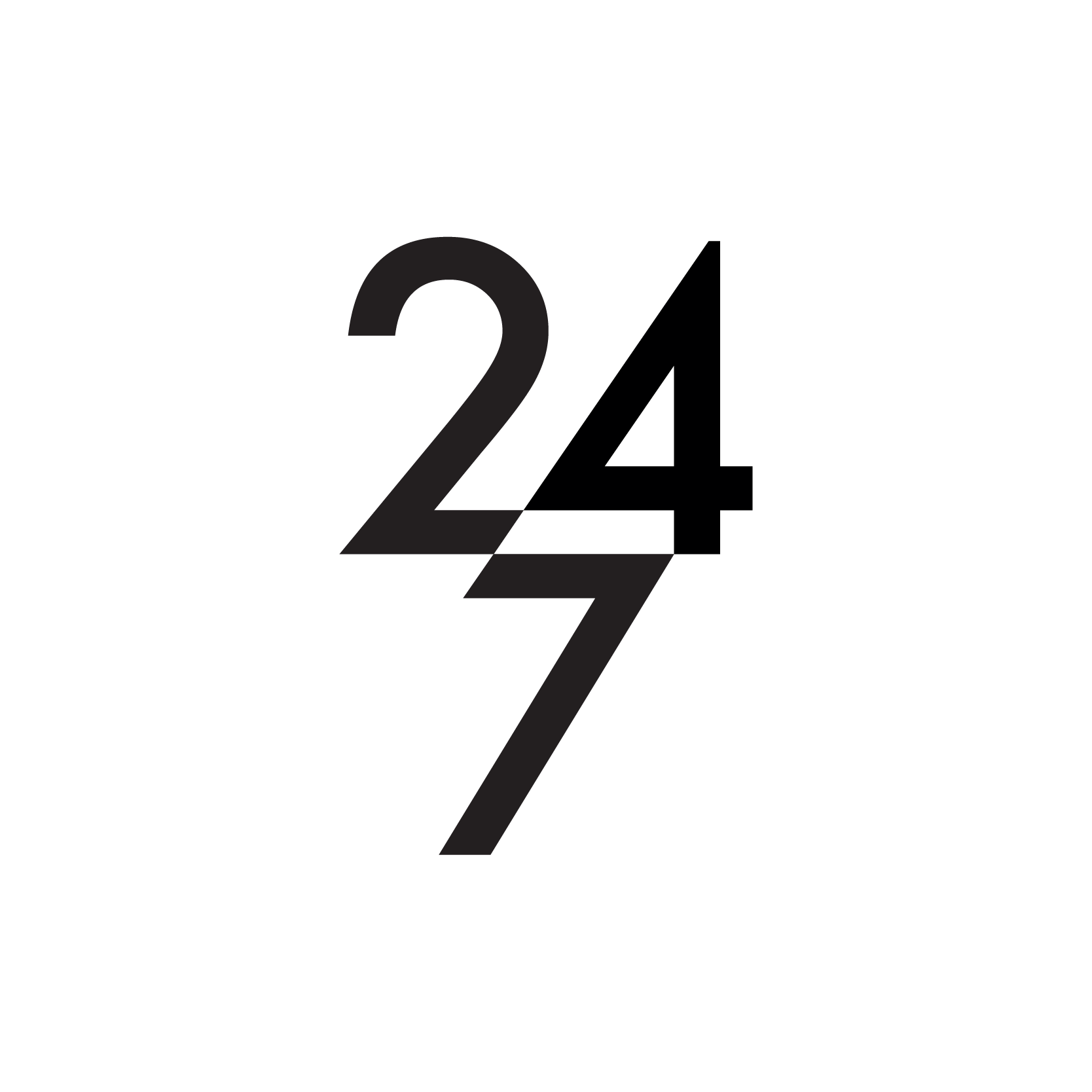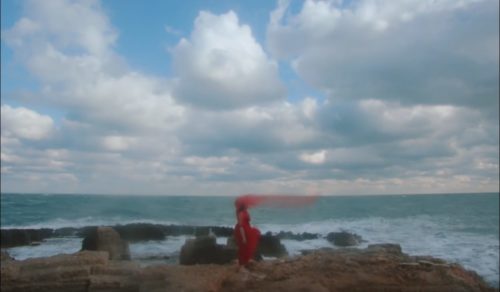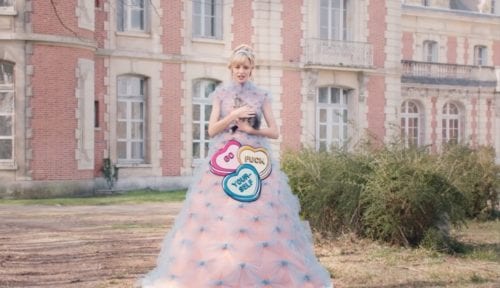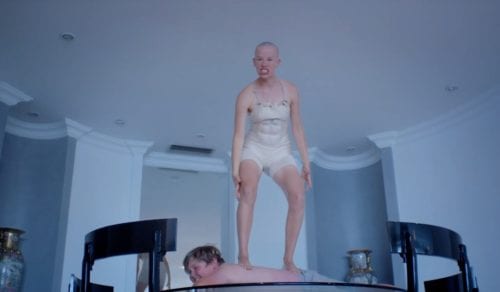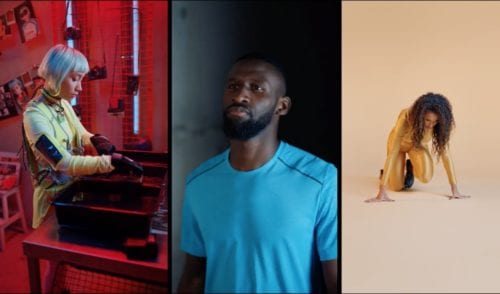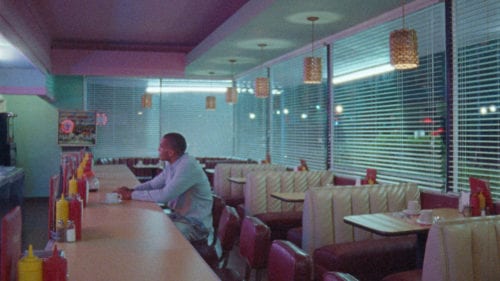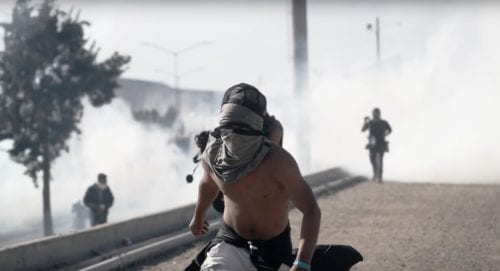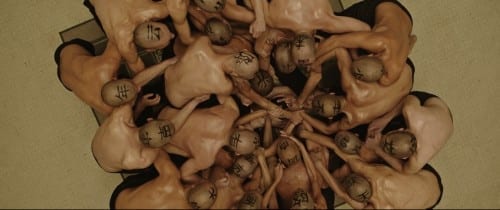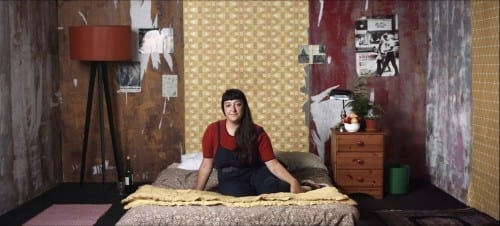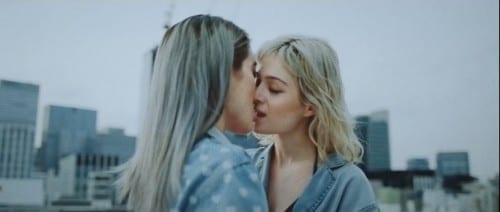What was it about this poem in particular that drew you to wanting to make the film of it? Did it resonate immediately with you or was it more a slow burner?
There’s two things that really resonated with me when I read this poem. One, the poem is about a subject that I’ve always wanted to make a film about. I’ve had bizarre dreams about images to do with the poem, and they actually ended up being scenes in the film.
Two, the poem does not shy away from the truth and uses a free association format that lends itself to strong, vivid imagery. There’s a bitter irony between the loose and fluid style of the poem in contrast to the subject matter: self-censorship, oppression, and discrimination. This makes it a strong poem for a short film.
You’ve brought your own film language to interpreting the poem – please describe your process how you went about developing the visual narrative?
I started by doing a lot of research on both the Emmett Till and Trayvon Martin cases. Although I knew of the cases, I wanted to know if there was anything I was missing. I wanted to understand exactly what happened on those nights, what the news misreported, what the jury lingered on and discussed — ultimately trying to gain a well-rounded understanding of the murders.
Then I started playing with the format of the poem. I read the words on the page and thought of random (but really not so random) images that come to mind when reading. I jotted them down across a page, then started to link them to the lines in the poem.
Some images weren’t feasible given the budget, but most of them were. So I wrote down exactly what image the audience would see with each line, and tried to create a cinematic, vivid narrative that reflects fluidity of the poem. I also inserted symbols that give even more insight into those murders, trying to create the feeling that people feel when hearing about these two murders in the news. Then, with a lead central character that becomes the voice of the poem, I created the emotional thread throughout the images.
I guess it was a bit of a weird process, but it felt right, and actually now its one of the films that I’ve made that I like most. Mainly because every second of the film has been thoroughly thought about.
Did you actually go to the South to shoot on location?
Unfortunately no. We actually shot in and around London. We initially wanted to film in the South but we didn’t have the budget for it. So we had to think outside the box a little and film in studios and in locations that we could re-create this Southern United States look and feel.
Did a lot of the film evolve in the edit or did you have the visuals locked down more or less before shooting?
Most of the visuals and transitions were thought about and discussed with the DP, Joel Honeywell, before shooting. We spoke a lot about how we create this fluid motion in the camera which could then be translated into the edit. There were some changes that were made late in the game, and then the editor, Pete Fullerton, had some great ideas of how to make sure the words connected with the visuals, so we adjusted the script a bit to pin point the narrative.
What was the most challenging aspect of the production?
Probably getting funding, getting the right to use Bon Iver’s track, and then trying to get a platform to help us release the film online. Honestly, the shoot itself and post-production was one of the most smoothly run sets I’ve been on, thanks to our producer Ed. It wasn’t really until we were getting to the last legs that things got difficult.
For a moment we thought it was you starring as well – are there any cameos of you?
It wasn’t me haha I actually don’t have any cameos in the film.
What’s next?
I have a music, docu-series coming out soon about up-and-coming musicians in Cuba. I’m excited about it because it was a Havana Club x Gilles Peterson production and there is a great album to go with it. So definitely stay tuned for that one.
A FILM BY
Savanah Leaf
EXECUTIVE PRODUCERS
Todd Boss, Egg Creative, Claire McGirr
PRODUCER
Edward Freeman
DIRECTOR OF PHOTOGRAPHY
Joel Honeywell
EDITOR
Pete Fullerton
IN ASSOCIATION WITH
Stink Films
“The Ayes Have It,” a poem by Tiana Clark. ©2012 Tiana Clark. Used by permission. This poem first appeared in Raven Chronicles.
STORY BY
Savanah Leaf
STARRING
Ayesha McMahon
Isiah Chambers
Ajani Johnson–Goffe
Olivia Bright
Harry Tibble
Connie Freeman
Skyla Wilson
Ayaana Aschkar-Stevens
Mulan Itoje
Pippa Christian
Laurence Sessou
Jason Ryall
Victoria Blauss
VOICEOVER ARTIST
Malina Tirrell
CASTING BY
Savanah Leaf
Tytiah Blake
ASSISTANT DIRECTOR
Sophia Dembitzer
FIRST ASSISTANT CAMERA
Andrew Bradley
Ondrej Rybar
SECOND CAMERA ASSISTANT
Carmen Pellón Brussosa
STEADICAM OPERATOR
Jake Whitehouse
CAMERA TRAINEE
Kairo Jones
Vivien Goddard-Stephens
GAFFER
Ben Miller
ART DEPARTMENT
Georgia Charter
HAIR
Susy Etionsa
MAKE-UP
Yvette Francesca
STYLIST
Sophia Dembitzer
STINK FILMS
ASSOCIATE PRODUCER
Andrew Levene
THE MILL
COLOURIST
Oisin O’Driscoll
PRODUCER
Dan Kreeger
SOUND DESIGN
Ben Chick
FOLEY EDITOR
Sophia Hardman
RE-RECORDING MIXER
Will Miller
SPECIAL THANKS
Stink
The Mill
Feral
ProCam
Panavision
Ide Verde
Stock Yard
Connie at Merton Film Office
Clara and Michael Freeman
Josh Posner Catering
